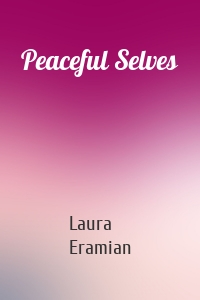Laura Eramian
1 кн.
Peaceful Selves
This ethnography of personhood in post-genocide Rwanda investigates how residents of a small town grapple with what kinds of persons they ought to become in the wake of violence. Based on fieldwork carried out over the course of a decade, it uncovers how conflicting moral demands emerge from the 1994 genocide, from cultural contradictions around “good” personhood, and from both state and popular visions for the future. What emerges is a profound dissonance in town residents’ selfhood. While they...
| Автор | Laura Eramian |


